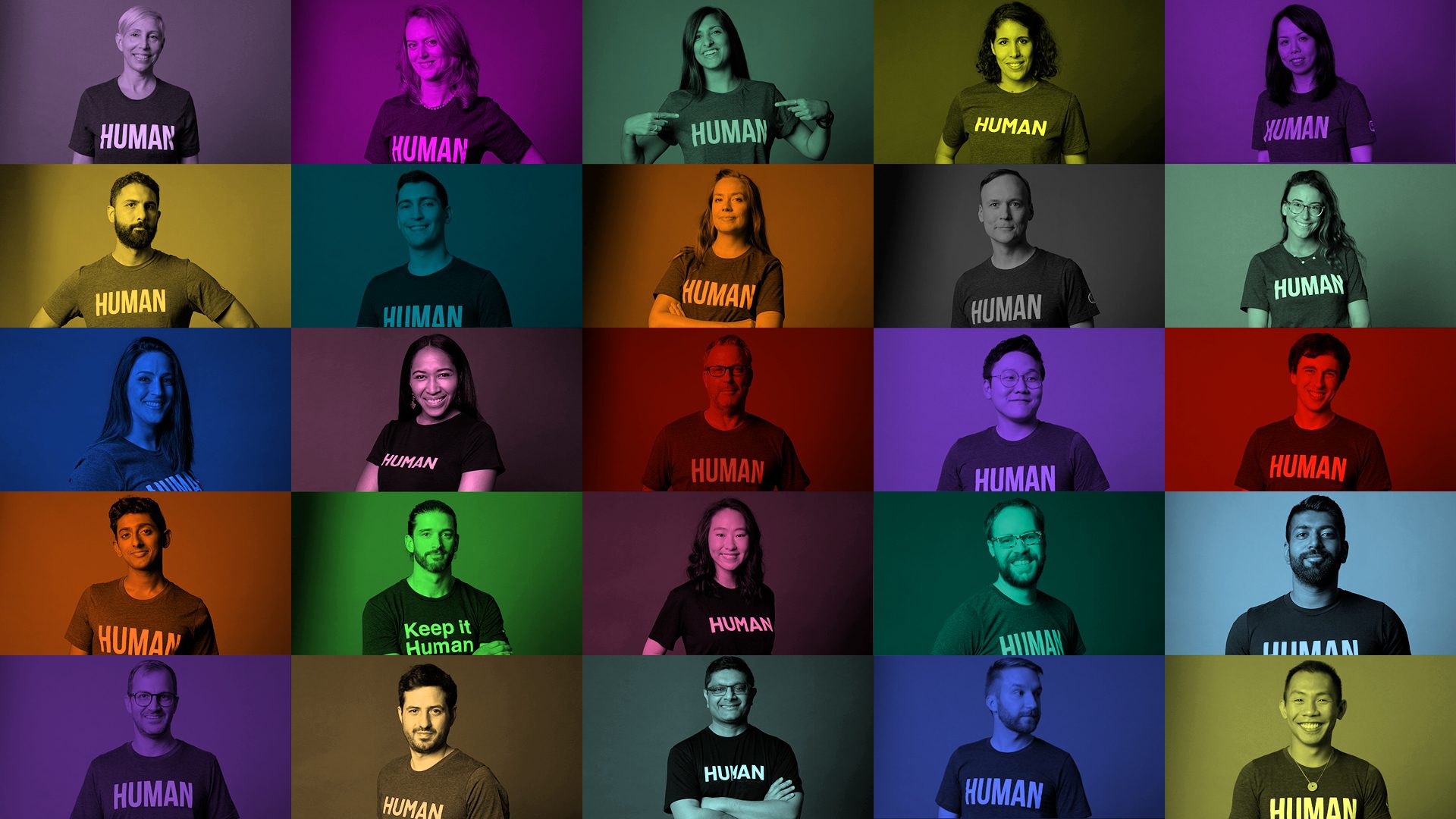HUMAN Pride
Read time: 4 minutesAdam Sell

The first Pride-related event I went to was sometime in the mid-2000s. I had recently finished my sophomore year in college, and would have been roughly six months out of the closet at that time. In the half year since I had announced to the world at large that I was a queer person, virtually nothing had changed: I still associated with all of the same friends I had associated with before then, I still participated in all the same activities I had participated in before then, and I still had as few dates (read: zero) as I had before then.
That Pride parade was a sensory overload. I walked away from it with my ears ringing, sweating profusely (it’s June in Boston, after all), covered in glitter, and toting a takeout food container full of safe sex supplies. In 2006 or so, it was still a defiant, political act to say out loud, “I am queer and I want you to know that.” That was true even in my relatively progressive Massachusetts hometown, which had begun permitting same-sex marriage two years prior. And the parade was, accordingly, still a mishmash of queer liberation groups, hobbyists with a queer bent to them, and sexual health organizations, hence the condoms.
I’ve been to most of the parades since, and the event has evolved dramatically. No more condoms, a lot less glitter, and a lot less queer liberation focus. It’s now an interminable series of brands with rainbowed logos and cheap imported beads and tchotchkes to hand out to the attendees, which now includes hundreds or thousands of people whose age hasn’t yet broken double digits. Even in the short time (~six years) that I’ve led my soccer group in our marching in the parade, the list has just grown longer and the people have just grown younger.
This isn’t inherently a negative development – the participation of mainstream and family-oriented groups implies that queerness is less political now than it was 15 years ago. It’s not only acceptable for a corporation to gesture in support of queer people, it’s demanded. With that demand, though, came pinkwashing, the phenomenon of corporations aesthetically signaling support for queer rights (rainbow logos, marching in Pride parades) while doing little or nothing to help queer people. Or worse, actively contributing to organizations or politicians that work against queer people.
Queer groups, or at least the queer groups I associate with, are repulsed by pinkwashing. It’s emblematic of the seizure of the queer liberation movement and its transformation into “rainbow capitalism”, a term used to represent the cynical appropriation of queer imagery and culture for the purpose of gaining public sentiment, and therefore, more money. We’re immediately suspicious of rainbowized logos, we’re skeptical of the intent behind participation in parades, and we’re scouring public disclosures to find evidence of double dealing.
All of this is context for the following:
That is not the sense I have with HUMAN and Pride.
I have been out at HUMAN from the day I walked in. I have never for a moment felt like there was anything to gain by trying to pass, let alone anything to lose by refusing to do so. Granted, I have enormous privilege in that I’m a white cis male, so my queerness puts me at almost no systemic disadvantage. But I share that queerness with HUMAN employees who identify as women, who identify as BIPOC, who identify as non-binary or trans…who all have completely different lived experiences from my own. And as far as I can tell, we’re cultivating a workplace that’s safe for any identity.
When I was approached to help design our involvement in Pride this year, my biggest concern was that nothing we did could be construed as performative. As pinkwashing. I won’t be complicit in anything that reeks of rainbow capitalism. But our Pride—HUMAN’s Pride—it doesn’t.
Following a comedy night staged and hosted by one of our queer employees (for which the comedians, all of whom are queer, will be paid appropriately), we’ll be making a donation to Rainbow Railroad. Rainbow Railroad is an organization whose mission is to rescue queer people living in countries with state-sponsored violence against gender and sexual minorities, and the organization delivers them to countries where they can live authentic and safe lives. It’s an organization I’ve supported in the past, and their noble mission reminds me of our own – it’s about the opportunity to be human in a place that recognizes you for who you are.
It’s with that knowledge, that demonstration of intent, that I feel comfortable, as the owner of our corporate website and social media platforms, making the switch in our logo to the one you see now. This isn’t rainbow capitalism on HUMAN’s part, it’s a statement of belief. It’s who we’ve always been.